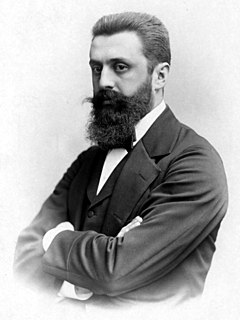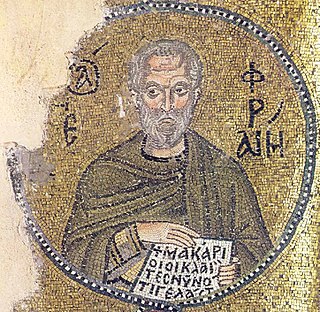A Quote by Isaac of Nineveh
Whoever prematurely begins a work that is above his strength receives nothing, but only brings harm upon himself.
Related Quotes
If one of you sees, sometime, something unedifying and so much as goes on to pass it on and put it into the heart of another brother, in doing so you not only harm yourself but you harm your brother by putting one more little bit of knavery into his heart. Even if that brother has his mind set on prayer or some other noble activity, and the first arrives and furnishes him with something to prate about, he not only impedes what he ought to be doing, but brings a temptation on him. There is nothing graver or more deadly than this doing harm, not only to himself but also to his neighbor.
The man at the top of the intellectual pyramid contributes the most to all those below him, but gets nothing except his material payment, receiving no intellectual bonus from others to add to the value of his time. The man at the bottom who, left to himself, would starve in his hopeless ineptitude, contributes nothing to those above him, but receives the bonus of all of their brains. Such is the nature of the 'competition' between the strong and the weak of the intellect. Such is the pattern of 'exploitation' for which you have damned the strong.
The Master gives himself up to whatever the moment brings. He knows that he is going to die, and her has nothing left to hold on to: no illusions in his mind, no resistances in his body. He doesn't think about his actions; they flow from the core of his being. He holds nothing back from life; therefore he is ready for death, as a man is ready for sleep after a good day's work.
He brings to naught, destroys and rejects all that is not His own work; how He draws everything to Himself and absorbs it, that at last He may live and work in us and through us and reign alone as king. Happy the soul who refuses nothing to love, but places everything at His disposal, for only thus may all our works be done more and more in God.
The Lord gave the wonderful promise of the free use of His name with the Father in conjunction with doing His works. The disciple who lives only for Jesus' work and kingdom, for His will and honor, will be given the power to appropriate the promise. Anyone grasping the promise only when he wants something very special for himself will be disappointed, because he is making Jesus the servant of his own comfort. But whoever wants to pray the effective prayer of faith because he needs it for the work of the Master will learn it, because he has made himself the servant of his Lord's interests.
The fact that labour is external to the worker, i.e., it does not belong to his intrinsic nature; that in his work, therefore he does not affirm himself but denies himself, does not feel content but unhappy, does not develop freely his physical and mental energy but mortifies his body and his mind. The worker therefore only feels himself outside his work, and in his work feels outside himself.
A man only begins to be a man when he ceases to whine and revile, and commences to search for the hidden justice which regulates his life. And he adapts his mind to that regulating factor, he ceases to accuse others as the cause of his condition, and builds himself up in strong and noble thoughts; ceases to kick against circumstances, but begins to use them as aids to his more rapid progress, and as a means of the hidden powers and possibilities within himself.
Philosophical studies are beset by one peril, a person easily brings himself to think that he thinks; and a smattering of science encourages conceit. He is above his companions. A hieroglyphic is a spell. The gnostic dogma is cuneiform writing to the million. Moreover, the vain man is generally a doubter. It is Newton who sees himself in a child on the sea shore, and his discoveries in the colored shells.










































